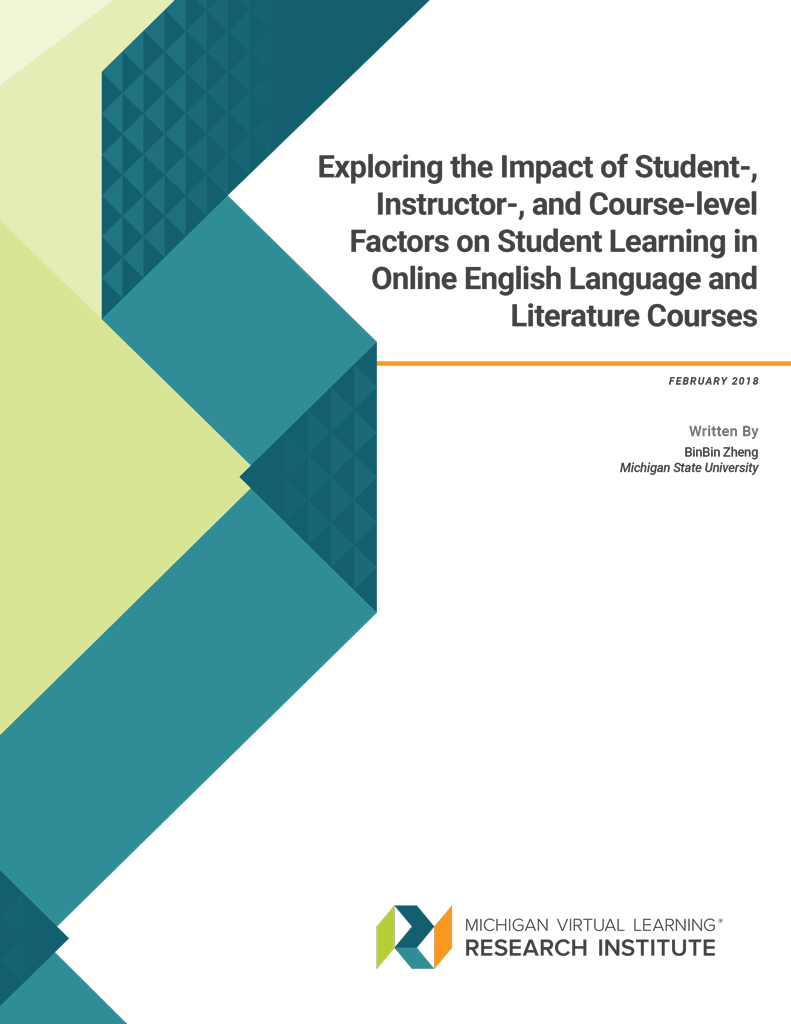Abstract
 The number of K-12 students taking online courses has increased tremendously over the past few years. However, while most current research in online learning focuses either on comparing its overall effectiveness with traditional learning or examining perceptions or interactions using self-reported data, scant research has looked into online design elements and students’ learning outcome in K-12 settings. This report seeks to explore how the combination of three main online education components—student, instructor, and course design—contribute to students’ online learning success in high school English language and literature courses.
The number of K-12 students taking online courses has increased tremendously over the past few years. However, while most current research in online learning focuses either on comparing its overall effectiveness with traditional learning or examining perceptions or interactions using self-reported data, scant research has looked into online design elements and students’ learning outcome in K-12 settings. This report seeks to explore how the combination of three main online education components—student, instructor, and course design—contribute to students’ online learning success in high school English language and literature courses.
Written By
- BinBin Zheng – Michigan State University
What we already know
- Mixed findings were reported regarding the effectiveness of online language courses.
- Key obstacles in online language learning include the lack of sufficient interactions, immediate feedback, and technology training.
- Self-reported online interactions significantly predicted students’ academic achievement.
What this report adds
- Project-based assignments were beneficial for all students in online English language courses.
- Text-based learning resources, such as instructor guides, helped students gain better learning outcomes at the end of the semester.
- Engaging students in more low-level knowledge activities, such as remembering, had a negative impact on their learning outcomes.
- Giving students autonomy in their own learning, promoting discussion and feedback exchange, and strengthening students’ sense of audience and authorship were of vital importance to students’ success with online language learning.
Implications for practice and/or policy
- Course designers could consider incorporating project-based assignments in online language courses, which usually involve higher-level knowledge skills (e.g., analyze, evaluate, and create), as it may increase students’ learning outcomes.
- Online teachers and course designers should not use the online discussion board simply as a platform for submitting written assignments; instead, it should be fully explored to maximize its affordance for interaction and feedback exchange.
- Online instructors or course designers could consider including more text-mapping or organizers to better scaffold students’ reading comprehension and writing process in English language courses.